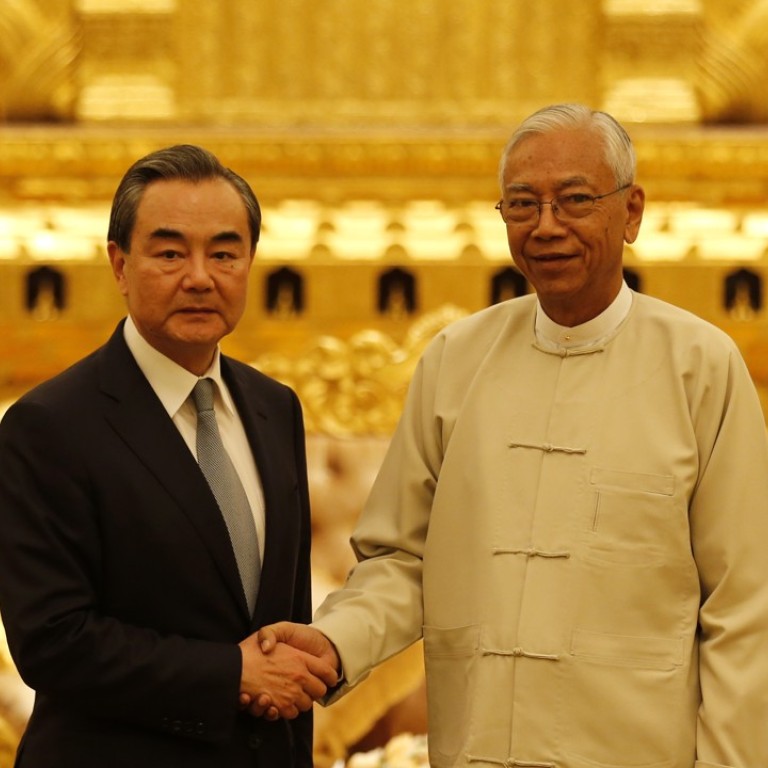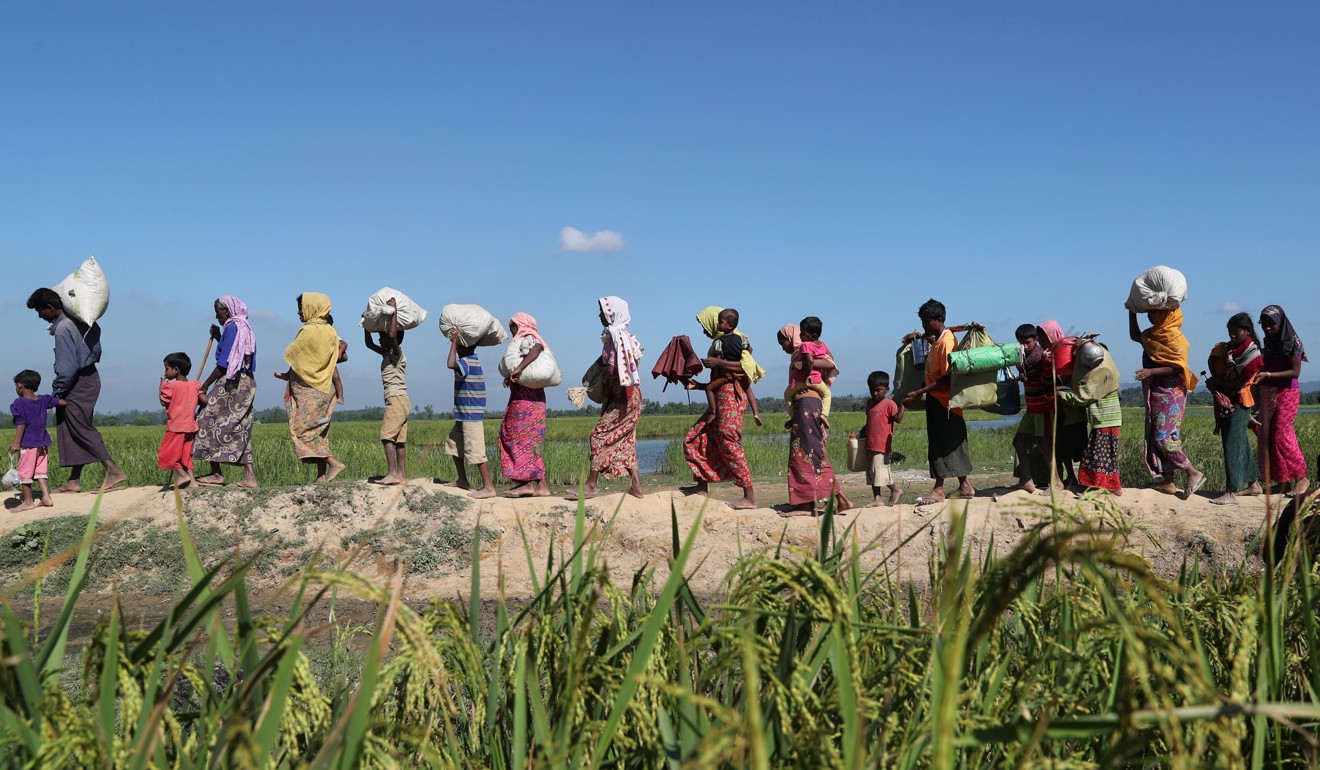
China and Myanmar talk infrastructure as Rohingya crisis rages
China and Myanmar tried to keep the focus on economic ties on Monday, vowing to push ahead with a joint “economic corridor” against the backdrop of the ongoing Rohingya refugee crisis.
The show of unity came during Chinese Foreign Minister Wang Yi’s visit to Myanmar’s capital Naypyidaw, where he met President U Htin Kyaw.
U Htin Kyaw said his government supported the building of a China-Myanmar economic corridor, a centrepiece of Beijing’s “Belt and Road Initiative”, state-run Xinhua reported on Monday.
He also said he said he appreciated “the Chinese stand” on the Rohingya crisis and was willing to negotiate with Bangladesh to solve the problem.
More than 600,000 Rohingya Muslims have fled Myanmar to neighbouring Bangladesh since late August, in what rights groups have described as a military-backed ethnic cleansing campaign in Rakhine State.
The crisis has sparked international condemnation over the Buddhist-majority country’s treatment of its Rohingya minority, amid reports of murder and rape.
On Sunday, Wang proposed a “three-stage plan” to address the crisis. The first stage is to have a ceasefire, the second is to foster exchanges between Myanmar and Bangladesh, and the third is for the international community to help develop Rakhine.

As a short-term measure, Beijing delivered 150 tonnes of aid to refugees in Bangladesh in late September, without saying explicitly that the supplies were for Rohingya.
Apart from India, China has been the only country to openly back the Naypyidaw government throughout the crisis, support that has strengthened ties between the two countries, according to analysts.
China’s ties with Myanmar cooled when the Southeast Asian country pursued democratic reforms in 2011, but Beijing’s influence over its neighbour has grown as Washington has taken a more hands-off role in the region.
Under the belt and road umbrella, Beijing has backed various massive infrastructure projects such as the US$7.3 billion deep-water port in Rakhine and a US$2.45 billion oil and gas pipeline project linking the state with southwestern China.
Enze Han, a specialist in China’s relations with Myanmar at the SOAS University of London, said attitudes in Myanmar towards China had become very positive.
Fan Hongwei, from Xiamen University, said China was closely watching Myanmar for any fallout from the crisis on Chinese investment in the country.
Du Jifeng, a Southeast Asian affairs expert at the Chinese Academy of Social Sciences, said US Secretary of State Rex Tillerson’s recent trip to Myanmar might have prompted China take a greater interest in the country.
Additional reporting by Shi Jiangtao

